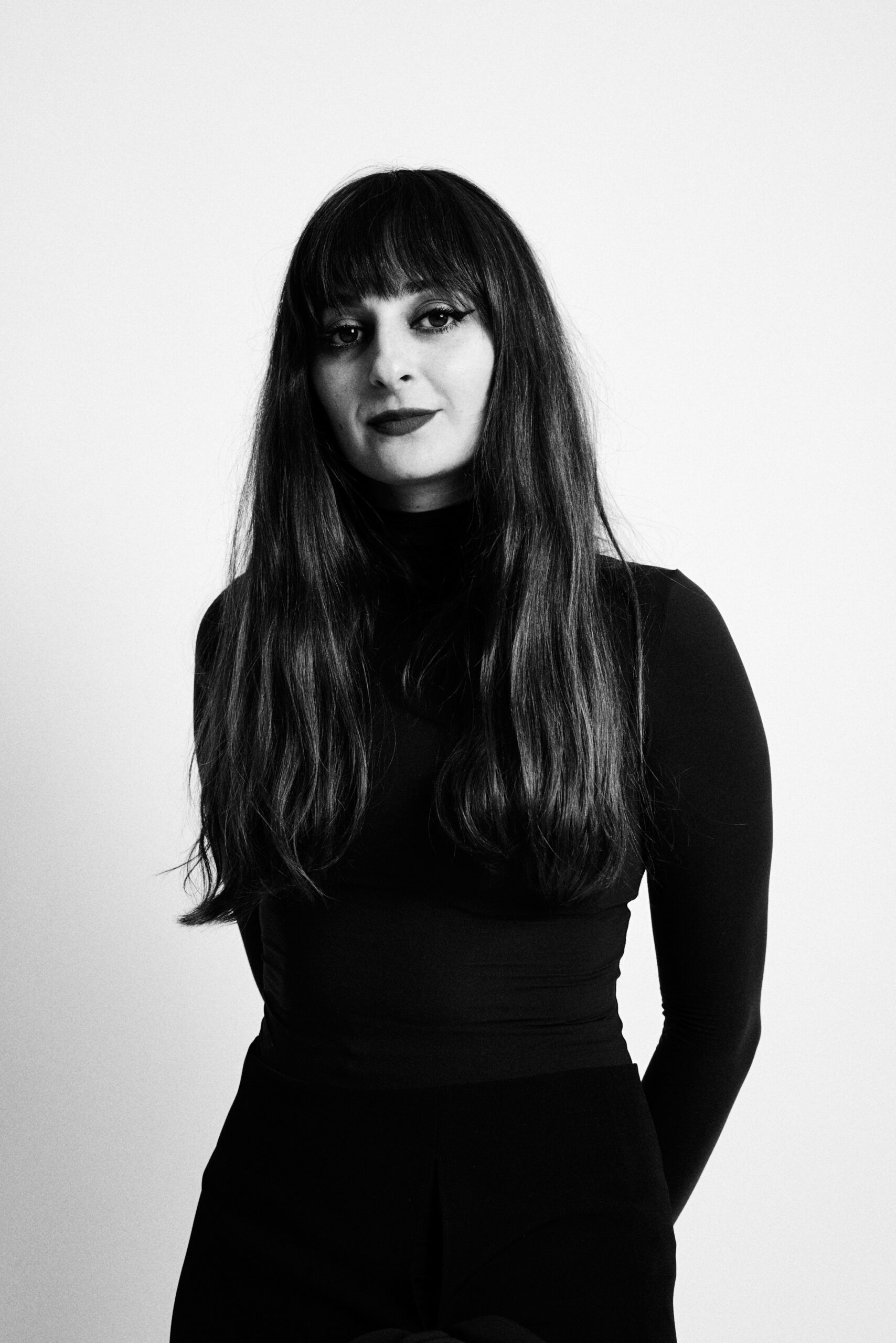FOR IMMEDIATE RELEASE
April 2024
Chloë Cassens, representative of the Séverin Wunderman Collection, launches SACRED MONSTER,
an education project celebrating the legacy of Jean Cocteau
The launch coincides with Jean Cocteau: The Juggler’s Revenge at the Peggy Guggenheim Collection opening in April in Venice, Italy

Chloë Cassens. Photo: Keenan Reed
Los Angeles, CA – Chloë Cassens, representative of the Séverin Wunderman Collection, launches SACRED MONSTER, an education project celebrating the enduring legacy of Jean Cocteau (1889 – 1963). Wunderman’s Cocteau collection, the largest in the world, is housed in the Musée Jean Cocteau, Collection Séverin Wunderman in Menton, France. The launch coincides with the exhibition Jean Cocteau: The Juggler’s Revenge at the Peggy Guggenheim Collection in Venice, Italy, on view April 13 – September 18, 2024.
Raised between Los Angeles and Switzerland, Cassens grew up immersed in her grandfather’s collection of Jean Cocteau’s work and is a longtime scholar of the artist, having given talks on Cocteau at the Holocaust Museum LA and the French Institute Alliance Française for a screening of Cocteau’s La Belle et la Bête (1946). Her grandfather, Séverin Wunderman (1938 – 2008), was the founder of Gucci Timepieces, a philanthropist, and a lifelong devotee and collector of Jean Cocteau.
SACRED MONSTER is an education and essay project that argues not only for Jean Cocteau’s impact as one of the preeminent artists of the 20th Century as well as the surrealist and Dadaist movements but also his lasting influence on contemporary culture. The term SACRED MONSTER, coined by Cocteau, refers to “a celebrity whose eccentricities or indiscretions are easily forgiven by admirers.” SACRED MONSTER also seeks to answer the question that has preoccupied much of Cassens’ life: Why Jean Cocteau, and why was her grandfather such an avid collector of his work?
Wunderman, who refrained from public praise, only ever consented to having his name attached to three major causes: as a lifetime supporter of the USC Shoah Foundation, a commemorative wing of a surgical lab at UCLA that he donated to following his lung cancer diagnosis, and the Musée Jean Cocteau, Collection Séverin Wunderman to which he contributed his collection after receiving the Ordre national de la Légion d’honneur, France’s highest decoration of merit. Although Wunderman preferred to stay out of the public eye, his influence on culture is extensive. Sara Gay Forden, for example, whose book House of Gucci inspired Ridley Scott’s movie, articulated Wunderman’s influence on the book in an interview with New York Magazine.
A survivor of the Holocaust, Wunderman went into hiding when he was two years old in a network run by a Jesuit priest. As the only one who could see in a convent school for a blind children, he would lead the other children until after the war when his family came to collect him. As Cassens points out, throughout his life, Wunderman was able to see what others could not, going on to found Gucci Timepieces and anonymously support a myriad of philanthropic causes, and perhaps this explains his lifelong obsession with an artist who has since been lauded for his boundless artistic vision. Cocteau famously worked across a multitude of disciplines, creating poetry, novels, plays, films, and visual artworks. However, many of his contemporaries disparaged Cocteau as unserious, and criticisms leveled against him were often homophobic. His exuberantly queer, erotic work is transgressive in nature, and pushes boundaries even in today’s context of identity and culture.
Cassens’ prior experience as the media director of The Sex Ed, a multimedia company dedicated to sex, health and consciousness education, makes her well equipped to discuss this aspect of Cocteau’s work. “I was already focusing on educating people around porn literacy, masturbation, and cybersecurity regimens,” she writes. “Why not apply it towards educating people on a subject I had been living with, in such a unique way, for my whole life?”
Jean Cocteau: The Juggler’s Revenge at the Peggy Guggenheim Collection, which includes a number of works loaned by Musée Jean Cocteau, Collection Séverin Wunderman, demonstrates Cocteau’s lasting impact, exacting posthumous revenge upon his critics over sixty years after the artist’s death. While such critics did not take his work seriously, Cassens grew up in a household where his work was revered and relevant, leading her to follow in Wunderman’s footsteps in keeping Cocteau’s legacy alive.
SACRED MONSTER offers perspective on not only Cocteau and those he influenced, but on contemporary culture. “We wring our hands over ‘unprecedented events,’” writes Cassens, “but any good student of the humanities will tell you that rarely has something never happened before. And in our current culture, we have only to look back some hundred years, to Cocteau and Bernhardt and their ilk, to see reflected back to us our own challenging times.” Cocteau, who was involved with the Fauvists, Dadaists, Surrealists, Modernists, the Ballet Russes, and the Avant-Garde, has influenced generations of thinkers and creatives. Thus, Cocteau’s work functions as a catalyst for broader historical and cultural analyses. SACRED MONSTER offers academic insight into popular culture, delving into topics ranging from art world homophobia and sexism to Cocteau’s involvement with fashion, and even a surrealist analysis of reality television.
Cassens writes: “I promise that SACRED MONSTER will be academic, yet accessible; cerebral, yet charming. If I’m successful, you’ll come away each month feeling a bit smarter, which can’t hurt.”
About Chloë Cassens
Chloë Cassens is the representative of the Severin Wunderman Collection, the largest in the world of works by iconoclastic French artist Jean Cocteau. It makes up the entirety of the contents of the Musée Jean Cocteau-collection Severin Wunderman in Menton, France. She is a longtime scholar of Cocteau with a unique perspective, as she is Wunderman’s granddaughter. Based in Los Angeles, she was raised between LA, Switzerland and France before receiving her B.A. in Comparative Literature from Barnard College. She is the author of SACRED MONSTER, a biweekly essay project dedicated to celebrating Cocteau and the Collection. As the Collection’s representative, she works to educate others about Wunderman’s legacy and popularize Cocteau’s work around the globe.
Sacred Monster Substack: https://chloecassens.substack.com/
Website: https://www.chloecassens.com/
Instagram: @chloecassens
About Séverin Wunderman
Severin Wunderman (1938-2008) was the Chairman of Corum Timepieces. A survivor of the Holocaust, his extraordinary trajectory saw him go from a child hidden from Nazis to striking gold as the Founder of Gucci Timepieces. Born in Belgium, he later became an American citizen who lived in La-colle-sur-loup, France; Laguna Beach, CA; and London, England. He dedicated his life to philanthropy, and anonymously gave his fortune away to those who needed it most. Married seven times, the love of his life was his art collection. He amassed the world’s largest collection of works by Jean Cocteau, starting from when he was nineteen years old until his death. On December 31, 2004, he was named Chevalier de l’Ordre des Arts et des Lettres by President Jacques Chirac. A titan of the watch industry, he was known as “The Time Lord”. The Musée Jean Cocteau-collection Severin Wunderman opened in 2011, and contains over 1200 pieces donated by Wunderman to Menton, France. He is survived by four children and six grandchildren.
